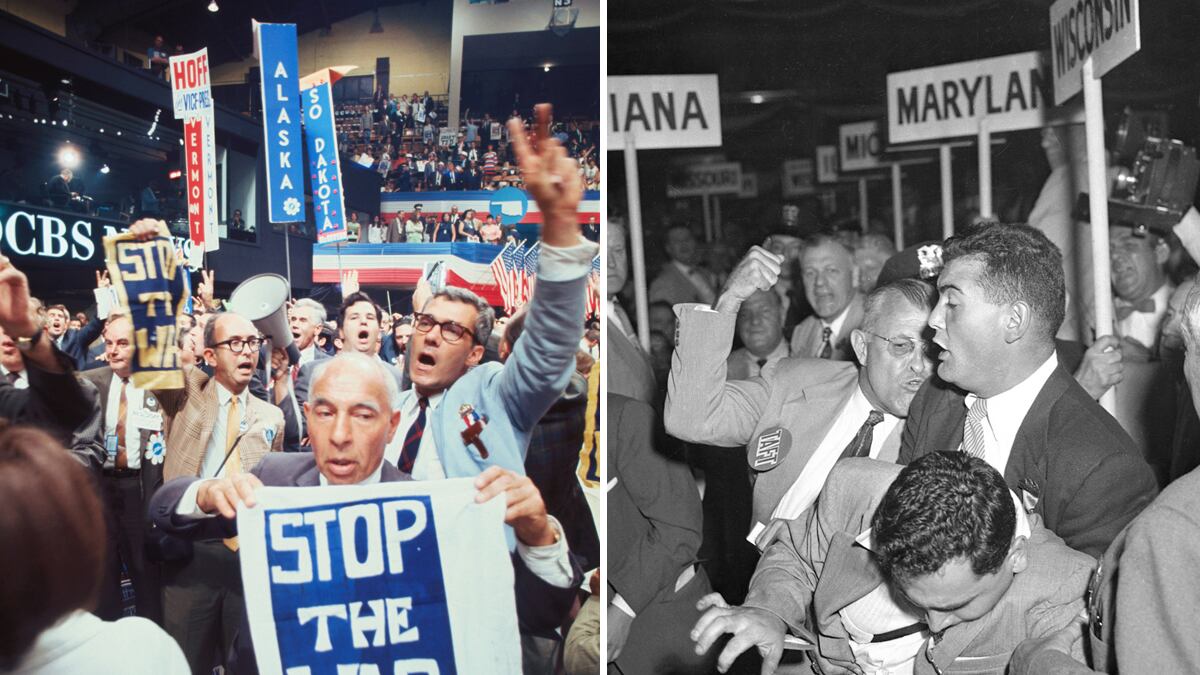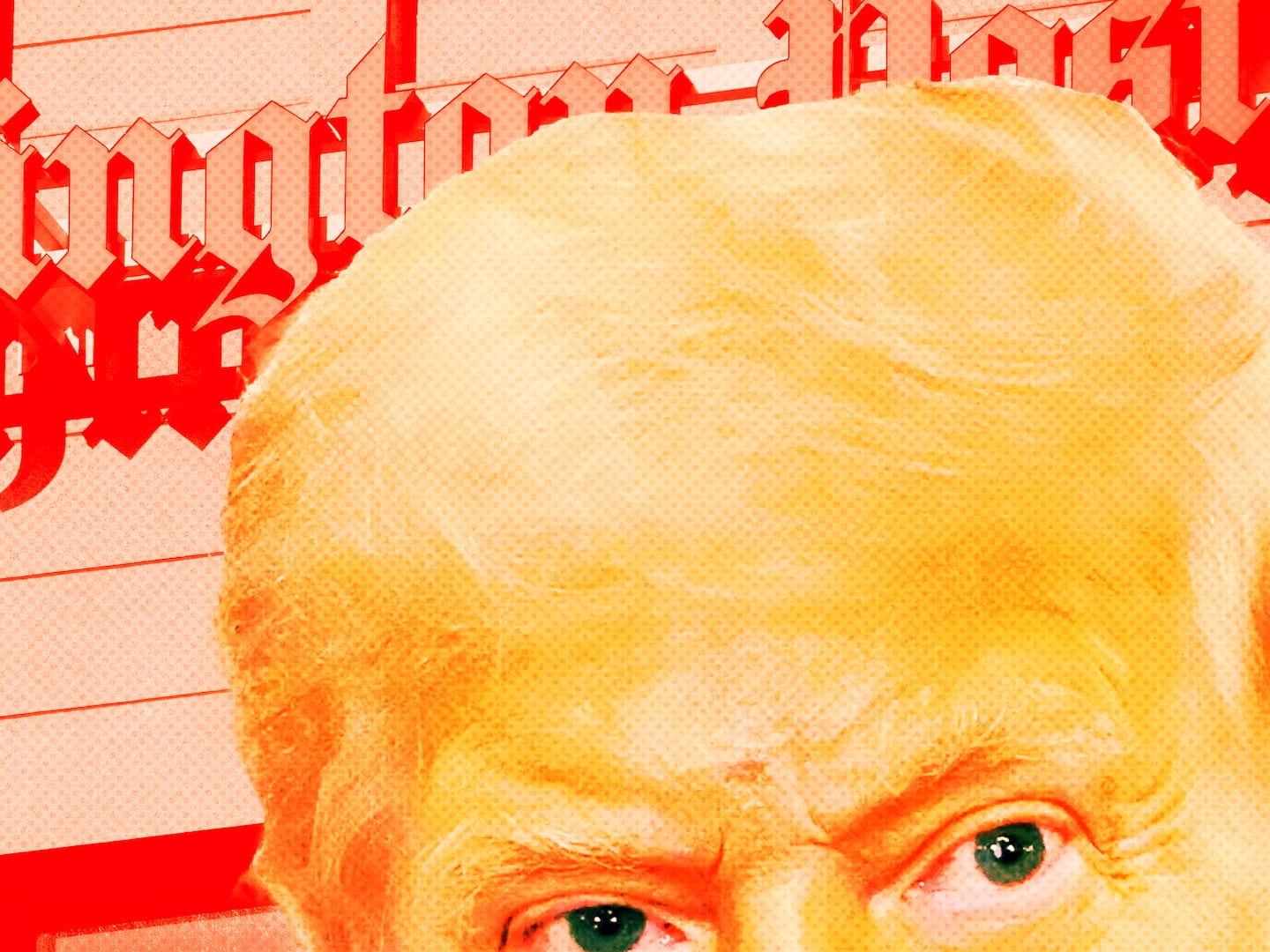Weather-related concerns about Tampa, the site of the Republicans’ 2012 national convention, first began circulating back in 2010. Now, as Tropical Storm Isaac marches toward Florida and looks likely to become a hurricane—forcing the cancellation of the first day of RNC events—the choice is looking even less wise. But this isn’t the first time misfortune has struck political conventions. Here’s a look back at history’s most notorious (and sometimes comically) disastrous Democratic and Republican national conventions.

DNC, 1924: The ‘Klanbake’ The 1924 Democratic National Convention was the longest continuously running convention in U.S. history, with delegates taking from June 24 to July 9 to pick a candidate. And it gets worse: the Ku Klux Klan, who at the time were just beginning to gain a popular foothold after a 1915 resurrection, had a strong political presence at the Madison Square Garden venue, which angered many attending Democrats. The resentment boiled over during an argument over a resolution against violent secret societies—the Klan managed not to be named specifically in the text of the resolution. Dueling delegates, including the governors of Kentucky and Colorado started throwing punches on the floor. And when Klan members won debates that had aimed to chide them for violent tactics, thousands of Klansmen celebrated in a nearby field by burning crosses and encouraging violence against Catholics and African Americans.
RNC, 1952: More Fist Fights Nowadays, the presidential candidate is all but a shoe-in before the convention begins. Not so in 1952, when Senator Robert A. Taft and war hero Dwight D. Eisenhower battled for the Republican nomination right until the end. But first, Chicago delegates discussed pressing issues of the day, from Communist subversion to the ongoing Korean War. The race was also tainted with accusations of stealing delegate votes, and emotions were high. As a senator from Illinois took the floor and accused Eisenhower’s manager of leading the party “down the road to defeat,” the audience got riled up and delegates from both sides began trading jabs in the aisle near the Indiana delegation.
DNC, 1968: Riots in the StreetsCultural tensions were high in 1968 when Democrats chose Chicago as the setting for their quadrennial meet-up. As the convention approached, Democrats became fearful that racial, social and political riots might erupt, and tried to move the event to Miami. But hotheaded Chicago mayor Richard Daley balked. Riots indeed erupted in the restive city, pitting Vietnam War protesters against 11,900 Chicago police, 7,500 Army troops, 7,500 National Guardsmen, and 1,000 Secret Service agents. TV crews caught on camera the graphic violence perpetrated by Chicago police against protesters, reporters, and innocent bystanders, leading to a government investigation and the trial of the infamous Chicago 8.
RNC & DNC, 1972: Miami MayhemIf the last time conventions were held in Florida reveals anything, it’s that luck is tends not to be on a politician’s side there. As Richard Nixon accepted his nomination for the Republican candidacy thousands of Vietnam War protesters gathered outside the convention for days to try to disrupt the proceedings. To stop antiwar demonstrators from nearing the RNC, police set up barricades of buses.
The Democrats didn’t fare too well that year, either. Nominee George McGovern was stalled by allowing delegates to nominate challengers to his vice presidential pick. Seventy-five options were suggested, and the ticket wasn’t resolved until 3 in the morning. Consequently, almost no TV viewers saw McGovern’s acceptance speech, in which he swore to bring every American soldier back from Vietnam within 90 days of his inauguration. To boot, the VP decision didn’t last long—Senator Thomas Eagleton was dropped after it was discovered that he had undergone electroshock therapy for clinical depression.
RNC, 2008: Stormy WeatherThis year isn’t the first time a storm has derailed the Republican National Convention. In 2008, Hurricane Gustav hit Louisiana, forcing planners to cancel some headlining events, like a speech from President George W. Bush. Outgoing vice president Dick Cheney also stayed away from the convention, as did representatives from other affected states. Senator John McCain, the party’s nominee, said it wouldn’t be appropriate to have a political celebration during an emergency. "We must redirect our efforts from the really celebratory event of the nomination of president and vice president of our party to acting as all Americans," he said.






